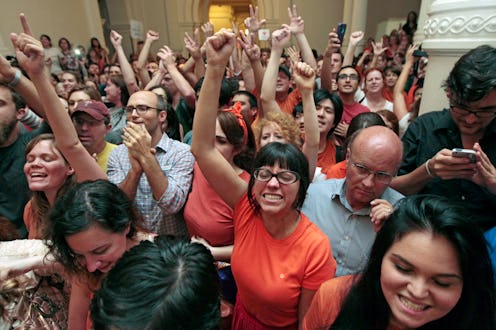News
Texas Abortion Restrictions Upheld
A federal appeals court has upheld the restrictive abortion laws Texas passed last summer, once again increasing the odds that the law will wind up in front of the Supreme Court. The three-judge panel at the 5th Circuit ruled that that the regulations requiring abortion clinics to have admitting privileges from a nearby hospital, which have already resulted in the closure of dozens of clinics, are constitutional. The panel also upheld new restrictions on the administration of medical abortions.
The contested law requires that all abortion clinics obtain admitting privileges from a nearby hospital. The ostensible reason for this is to deal with life-threatening emergencies resulting from botched abortions, even though abortions are one of the safest medical procedures in existence (far safer than giving birth, for example). So far, dozens of abortion clinics have closed in the state, with one closure leaving all women within a 400-mile stretch of Texas without any abortion access whatsoever.
In October, U.S. District Judge Lee Yeakel ruled that the restrictions, which the legislature passed in a special session last summer, were unconstitutional, and blocked them from going into effect. However, this decision was overturned three days later by the 5th Circuit Court of Appeals. A subsequent appeal to the Supreme Court to temporarily block the law while it made its way through the courts also failed.
Both the 5th Circuit and the Supreme Court’s previous rulings were all focused on the meta-question of whether or not the law should be enforced while undergoing appeal; in other words, they didn’t address the merits of the law itself. But the 5th Circuit did address the merits of the law today, and it ruled that they are within the bounds of the constitution.
It seems impossible at that this won’t ultimately end up in front of the Supreme Court, and the high court’s decision, whatever it ends up being, will have drastic implications for the future of abortion rights in America.
